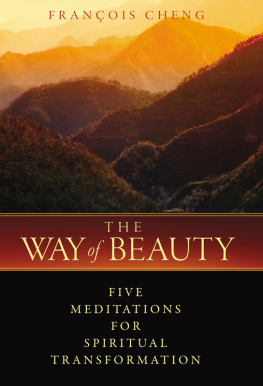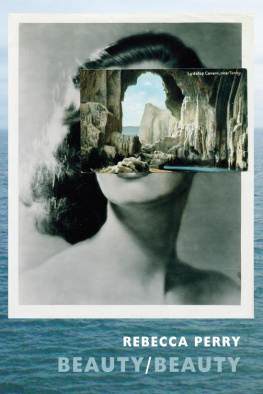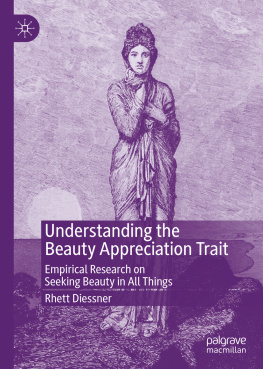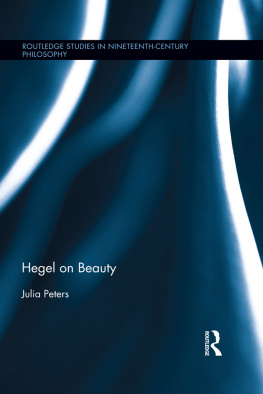ACKNOWLEDGMENTS
From whence comes the inclination to dwell upon, let alone write about, the disappearing beauty of the world? In no small way it arises from the inspiration of those people for whom the Earth has become part of their being, and who write about it with passion. Of many, I single out those who especially guided the form this book takes.
Peter Hay, under whose thoughtful guidance writers may flourish. Mary Jenkins, an environmental traveler from the beginning, whose friendship and assistance is ever ready. The traditionalist writers, Frithjof Schuon, Seyyed Hossein Nasr, Philip Sherrard, and Kathleen Raine, whose special insight into the ecological crisis helped illuminate the metaphysical landscape. Satish Kumar, whose whole life is a lesson in earth wisdom. And Angela Malyon-Bein, a companion in life, whose love, encouragement, and wise counsel never fails.
Grateful thanks go to all those at World Wisdom who have made this book possible, especially Mary-Kathryne Steele, Stephen Williams, and Clinton Minnaar.
Picture credits are as follows: Lake Pedder, Tasmania by Gordon Griffin; Lake Pedder from Frankland Range, Tasmania and Showers, Frankland Range, Tasmania by Olegas Truchanas, reproduced by kind permission of Melva Truchanas; Weld River, Southern Tasmania by Phil Griffin; Morning light on Little Horn, Cradle Mountain, Tasmania by Peter Dombrovskis, reproduced by kind permission of Liz Dombrovskis; Christ Pantocrator, Sancta Sophia, Istanbul, Turkey and Two birds, copper rendition of 16th-17th century ceramic tilework, Hotel d Grand Monarque, Chartres, France by the author; Patio de la Acequia, Generalife Gardens, Alhambra, Spain by Emma Clark and Khaled Azzam; Trisul, Himalaya, India, The Blue Virgin Window, Chartres Cathedral, France, and Mirador de Lindaraja, Alhambra, Spain by Angela MalyonBein.
POSTSCRIPT
Many of the great traditional cultures of the world refer to a cyclic movement of time, akin to the passage of the seasons yet vast in scope. In Hinduism there are four successive ages, or yugas; the last of them, the Kali Yuga, in which, it is said, we now live, is the darkest because in it a knowledge of our true nature has been all but eclipsed. In the Greco-Roman tradition, it was accepted that a remote golden age had long ago given way to one of iron. Nor was the state of humanity perceived any differently in the Abrahamic religions, where a sense of imminent doom pervaded Western consciousness until the Renaissance. And if, as was anticipated, this darkest of ages inaugurates a new cycle, it is not before a degenerate humanity has brought destruction to the world. Thus, the American Indian tradition foresees a purification day when the damage wrought to the earth will be redressed.
The mechanism for a destruction of biblical proportions is now evident. Global warming, if it continues to escalate, may bring not only flood, but fire, famine, and pestilence. Assuredly, it is humanity that is to blame. And, if we take the traditionalist stance that a spiritual crisis lies at the root of the ecological crisis, then the reason we are implicated is because an ignorance of our nature has allowed us to acquiesce to a dangerous paradigm of thought, the outward manifestation of which must be implicated in the worlds ruin.
Yet, as Philip Sherrard says, no one is making us pursue this suicidal path. Likewise, no one can stop us from changing our own self-image and consequently our world-view except ourselves. If our worldliness does not permit us to believe in a miraculous reinstatement of a golden age, still we may embrace the logic inherent in the view of cyclic time. A return to what was, implies a return to a past understanding, and so an understanding of the past. And while faith in a linear progress would once have made us shy from this return, the world we have brought into existence by our actions should allow us to recognize such faith as misplaced and delusionary.
An engagement with the programme that ecophilosophy has set itself was the initial impulse behind the imaginative travel into the past. An awareness of the exigencies we face, a mistrust of current thought, and a willingness to survey as wide a landscape of wisdom as possible, has provided ecophilosophy with the means to acquire, from the past, a vision for the future. Of all modern movements, it is capable of resetting the course that Western civilization has been compelled to follow for over four hundred years, abandoning the desolate seas of modernist thought, and making our way towards a re-encounter with a genuine metaphysical tradition. This is a lot to ask of a philosophy that is often captivated by the view around it, and by the siren song of science. However, the re-emergence of the sophia today may be seen as fortuitous for environmental thought. For, it is as if the past had come halfway to meet it, and brought, too, the same vital scepticism of the ultimate worth of rational empiricism that ecophilosophy often professes. It is in the esoteric dimension of traditional thought that we can discern the affirmation of precisely the qualities within humanity and within nature that have been denied through the overextension of reason. To find that tradition speaks of an intuitive perception, the supreme value of the natural world, and the mysterious feminine quality of beauty, is to be made aware of what the rational mind has silenced. It is to be made aware, too, of a clear point of convergence for both tradition and the environment movement.
The three elements, or strands, which seem to define this movement a profound response to nature, disaffection with the modernist paradigm, and an intuitive aspiration towards an essential wisdom that might guide our lives and heal the earthare echoes of those sentiments brought forth by Romanticism, wherein an initial revolt against scientism, together with the impact of esoteric thought, re-shaped the vision of nature. Too weak to resist the heroic impulse of science, however, this earlier movement fell apart.
An opportunity now exists to braid the three strands in a cord which will not break. This must be our aim. Beauty, that mysterious quality which explains the emergence of each strand, can also be what draws them together. The perception of beauty is like a secret revealedit is both evidence for an essential reality and for the unfolding of consciousness. When the beauty that dwells at the heart of nature is seen to be the same beauty in our inmost heart, beauty is revealed as a winged messenger moving between two worlds, unveiling as it goes. It becomes both the best of guides and the very means by which we travel.
We can always point to the benefits of modern science, and even debate the relative influence of science on the shaping of the modernist worldview. But we should be aware that modern science paralleled the demise of the sophia in the West, and that today the very operation of scienceits faith in reason, empiricism and measurement as the means to knowledgeobscures both an understanding of the Intellect, and the alternative vision of the world that it gives. To lose the vision of the Intellect is to lose a vision of nature as a supremely beautiful presence. It is to lose the vision of earth as paradise.
The tragedy of the world today is not just that there are ever fewer opportunities to experience the transforming quality of nature, but progressively less inclination. The beauty of this world is fast disappearing and we cannot expect ever to create an equivalent. Indeed, the consciousness that is heedless of its destruction has had beauty drained from it, and to be unable to register beauty is to be unable to produce it either. While the power of natures inner beauty would once have been all that was necessary to instil a love for the world, it can no longer be relied upon. Now that the discursive, rational mode of consciousness has become pre-eminent, we are as sleepwalkers blundering towards our doom, mindlessly wielding the firebrand that must seal it. In the absence of real vision, we are in desperate need of an imaginative visionan alternative view of ourselves and the worldto invigorate the nascent intuitive sense that lies at the heart of the environment movement. This could be achieved by providing a metaphysical foundation for this movementby ecophilosophy abandoning an outdated and increasingly restrictive paradigm and drawing instead from the wisdom of tradition.







